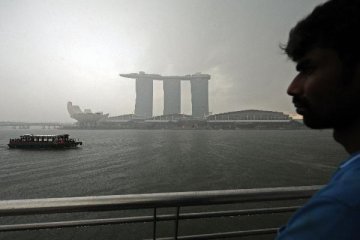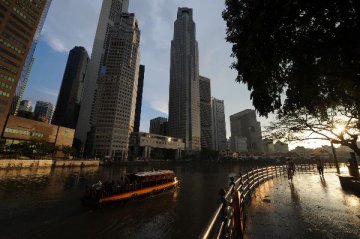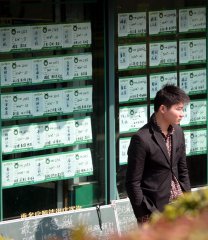
It has been ten years since the subprime mortgage crises broke out in America in 2007. Yet real estate markets in many countries across the world haven’t cooled down and regulation is still priority among priorities. However, Singapore begins to go against the market trend. It starts to relax real estate regulation policy which has been implemented since the US Federal Reserve carried out quantitative easing. Some capitals which seem to see “opportunities” are eager for actions.
As one of financial centers in Asia, Singapore was once the preferred choice for investment of various capitals and rich people. Especially since the US launched quantitative easing policy and with influence of low interest rate all over the world, overseas buyers flooded into real estate market of Singapore, making it the city with the second highest housing price in Asia.
The Singapore government stated repeatedly that it wouldn’t relax the regulation measures which it adopted since 2009 as the country feared potential property bubble. But it announced that it would lower stamp tax rate in March and ease restrictions over loans later. Previously, if house owners sold houses after owning them less than 4 years, they must pay stamp tax which is 4-16 percent of house price. But the time limit was shortened to 3 years and stamp tax rate was lowered to 4-12 percent since March 11.
Analysts indicated that the Singapore’s economy saw a better-than-expected 1.8 percent growth last year. Meanwhile, the Singapore government is always holding on to the construction proportion of resident housing and the real estate specific to overseas investment, forming a double-track system in housing market of the country. These factors are crucial for the country to take bold actions.
Based on comparison of housing price data, the housing price decline of Singapore has been narrowed. It dropped by 0.5 percent in the first quarter of this year when compared with that in the fourth quarter of 2016, while it fell by 3 percent last year. Whether will it rebound from the bottom if regulation policy is relaxed?
It may take time to prove this, but some capitals seem catch sight of opportunities. According to 2016 The Wealth Report of Knight Frank, though housing price was decreasing and regulation was still implemented, Singapore is still the hottest market for luxury residential buildings following Hong Kong in Asia.
The hot topic among attendees at the latest forum held by Real Estate Developers Association of Singapore was that foreign real estate developers were passionate in land bidding. Public information showed that Logan Property Holdings Company Limited and China Nanshan Development Group won the bidding of a piece of residential land from Singapore government at 1 billion Singapore dollars (equivalent to 735 million US dollars), which hit a new high at local land transaction record. It was reported by overseas media that land bidding of Singapore attracted 24 bidders in April, including foreign property developers China Construction Engineering (Nanyang) Development Co., Ltd. and SP Setia. A quarter of luxury houses at heartland of Singapore were purchased by Chinese investors in the first half of this year, according to statistics from Urban Redevelopment Authority of Singapore.
As for the overseas investment trend of Chinese capitals, Colliers International said that the focus of investment is expected to shift to Asian market. China’s property investment in Asia-Pacific region will still focus on Hong Kong, Sydney and Singapore in next few years. Yan Yuejin, research director of the E-House China R&D Institute, viewed that investing in such projects can improve their internationalized operation ability and offset operation risk in domestic market. Therefore, this kind of investment will continue to be favored. In addition, statistics from Savills, a leading real estate services provider, showed that insurance enterprises have been the major Chinese groups making outbound investment in real estate industry. The proportion of them posted over 60 percent last year and reached 80 percent in the first quarter of this year.
Zhuang Shuqing from PricewaterhouseCoopers said that relevant risks and problems are increasingly prominent as overseas mergers and acquisitions of Chinese enterprises expand. Enterprises need to strengthen management in transparency and risk control, be cautious about deployment, and attach importance to the authenticity and compliance of overseas investment.
Translated by Vanessa Chen






















Latest comments